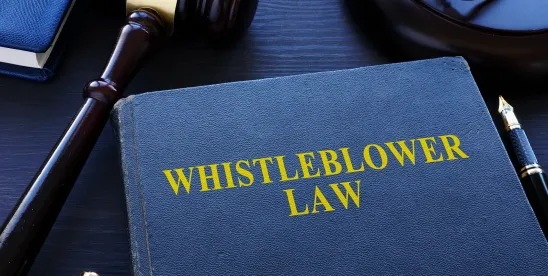On Tuesday, July 8, the DOJ Antitrust Division announced a first-of-its-kind Antitrust Whistleblower Rewards Program (the “Program”). But the Program’s fine print suggests it may not be as lucrative for whistleblowers as it appears at first blush.
The Program’s press release explains rewards may be paid to certain whistleblowers who provide original information about antitrust offenses that result in criminal fines or other recoveries of at least $1 million. The DOJ will partner with the United States Postal Inspection Service (“USPIS”) and the United States Postal Service Office of Inspector General (“USPS OIG”) to implement the program and pay the rewards. A reward could amount to 15-to-30% of the amount of the criminal fine or recovery, which could be substantial in some antitrust cases.
However, the Program’s Memorandum of Understanding (“MOU”) clarifies that payments may be limited to a narrow set of circumstances. To start, the whistleblower’s information must have a nexus to the Postal Service. MOU at 2-3. This is because the Postal Service, not the DOJ, has statutory power to pay informants. Under that statutory scheme, a whistleblower can only get paid for information about “violations of law affecting the Postal Service, its revenues, or property.” 39 U.S.C. § 404(a)(7). The MOU describes that the Program requires that “[a] whistleblower reasonably articulates violations of law affecting the Postal Service, its revenues, or property when sufficient facts and evidence are provided for the USPIS Official to conclude that the Postal Service has suffered an identifiable harm.” MOU at 8. Clarifying that, “the harm need not be material or otherwise pose any substantial detriment to the Postal Service.” Id.
In addition, to be eligible under the Program, the whistleblower must provide original, non-public information. Specifically, the MOU lays out that an eligible whistleblower cannot relate to conduct the Antitrust Division, USPIS, or USPS OIG already knows about, and must contain “original information” that “is not derived from publicly available sources” including the media or litigation. MOU at 5. Further, information is not considered “original” under the Program if it was obtained via a variety of situations including certain attorney-client relationships, as a compliance or public-accounting-firm employee, or by illegal means. Id. at 5-6.
The MOU identifies other important limitations on whistleblower eligibility. First, deeming ineligible whistleblowers who “coerced another party to participate in the illegal activity or were clearly the leader or originator of that activity.” MOU at 4. This criteria mirrors Antitrust Division Leniency Program criteria, but differs from the Criminal Antitrust Anti-Retaliation Act (CAARA) Whistleblower Statute’s language limiting whistleblower protections for individuals who “planned and initiated a violation.”
Further, the ineligible list includes officials, employees, and contractors of the DOJ, the Postal Service, or any law enforcement agency and certain of their relatives. MOU at 4. There is also a complicated and discretionary review and approval process by which the USPIS and Antitrust Division can decline to find that a whistleblower complaint meets the payment criteria and for determining what any award will be. Id. at 2-4, 8-9.
This Program represents a stark departure from the Antitrust Division criminal leadership’s historical resistance to paying whistleblowers that was driven by concerns of undermining both witness credibility and the Antitrust Division’s voluntary self‑disclosure Leniency Program. In addition to participant self-reporting through leniency, citizens have always been able to report suspected antitrust violations directly to the Antitrust Division, albeit with no prospect of a monetary reward for doing so until this Program.
Takeaways
While details of the Program’s application and payout potential remain to be seen, this new Program signals that today’s DOJ Antitrust Division is interested in incentivizing whistleblower reporting instead of relying primarily on leniency self-reporting to uncover antitrust crimes.
However, the Antitrust Whistleblower Rewards Program comes with many conditions for whistleblowers to receive payments, including that:
The conduct reported must:
- Constitute a federal criminal violation or related efforts to effectuate or conceal such conduct;
- Affect the Postal Service;
- Be original, providing non-public information as defined under the Program; and
- Result in criminal fines or other recoveries of at least $1 million.
The program contains considerable limitations and discretion, deeming whistleblowers ineligible who:
- Coerced another party to participate in the illegal activity or were the leader or originator of that activity;
- Are DOJ or Postal Service employees and contractors, or any law enforcement personnel and their relatives;
- Obtained the information through certain work relationships including as counsel, accountant, or compliance officer;
- Obtained the information through illegal means.
The Program’s impact on incentivizing additional reporting of antitrust crimes will take time to assess as reporting rates and payouts develop.




 />i
/>i

